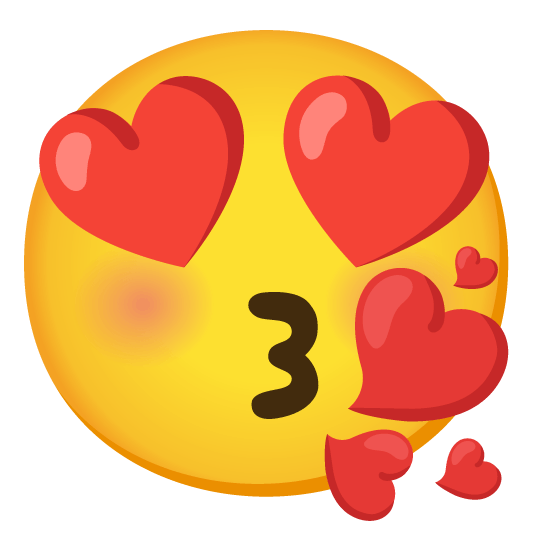loopy
- 11 Posts
- 30 Comments
What is the overall goal to teach them? Do they need to be journal articles? The most “grabby” headliners I have noticed are on marketing items. Especially if you want to appeal to a younger audience, you could screenshot examples from Snapchat tabloids. “Top 17 ways to get your SO to notice you more,” “Prince Harry did the unthinkable,” “How to instantly cut fat out of your diet,” etc.
Their goal is to “hook” you into reading or scrolling or watching. Journal articles might do this on a much milder scale. “Novel method for disposing of plastics.” So you think: Novel? Must be revolutionary. Let’s find out.
Idk I hope that helps.
That’s a good question. From what I gather, Lemmy (and most of the Fediverse) is an alternative to something, with less focus on the money/advertising. So I would guess most people are looking for an alternative way to connect about common interests. And because it’s not the easiest path for social media, I would guess most people have a desire for agency/self-reliance.
And because the whole Fediverse seems to be a different way of approaching social connecting, it takes a little more understanding of computer technology, so I would also guess most people have a least a higher than average affinity for computer technology. Linux and Programming Humor are larger communities.
That said, I have enjoyed a somewhat active participation about woodworking, gardening, jokes, news, medical updates, etc. Like mentioned in another comment, the different instances will have somewhat different norms and practices.

 0·2 months ago
0·2 months agoI guess not something that I would change, but I’m very glad we started with a marriage counselor. We did not have any overbearing concerns, but it has been immensely helpful in understanding each other and having a healthier relationship. Sometime people get weird and say “Oh no, a counselor, what’s wrong with your relationship.” Nothing. That is the point. Talk to one to get a baseline and when (not if) challenges come up, you don’t have to waste sessions filling them on your back story. Honestly, I think it should be required to do like three sessions before signing the papers, if nothing else to have someone point some things out that youre blind to otherwise about yourself.
I drove the bus driver for Slipknot back to his bus.
I also partied with Pretty Lights and Griz in a campsite but didnt know it at the time. Super chill people.

 0·3 months ago
0·3 months agoMy high school teacher was named Richard Face. That pretty much writes itself.
Or “Ihave Noname” or “Whatis Yourname” would probably cause some confusion.
I’m not sure what you’re using it for, but I use an ebook reader called eBoox. It’s free with no ads, not sure if open-source. I had bookmarks but I don’t think annotations. I like it because it can open my epub, mobi, and pdf books, change the font and font size, sepia and night modes, has many options for how to change the page, and fairly simple UI. The creator markets it as a cutesy cat thing, but that is only present on the initial setup and then it’s just a regular e-reader app.
Oh man, I have many many written down. I quickly found out that there are many schools of thought for approaching woodworking, so it’s helpful to think about what you want to make and what you like or dislike as you try different things. I decided I wanted to go the sharpening route, as opposed to continually buying electro-hardened blades, and I wanted to use as simple as tools as I can learn how. This ends up being axes, chisels, saws, and I did get a hand-crank grinder from 1910 for those heavy grinding situations.
I almost always have the Mortise and Tenon podcast on as I’m doing things. Joshua and Mike’s discussions really resonate with me and the philosophical elements really prompt some introspection. Joshua has two books that I’ll probably get soon. Otherwise, I bought Sharpen This and the Anarchists’ Toolkit; anything from Lost Art Press is probably worth the money.
As far as channels, Matt Estlea has many great videos for the essentials of sharpening and good form for chiseling and sawing. He also has other videos that I would consider “optional” but I did end up making his sharpening block stop, because it makes sharpening quicker. I may try to do free hand honing though, since the heavy cambre is difficult with a honing guide.
Paul Sellers has so many great videos. I especially loved him making a bench without having a bench. So many people show you how to make things already having many other tools and setups.
James Wright (Wood by Wright) has some really good videos and offers honest opinions. Beavercraft has some nice simple ones for getting started with carving. I haven’t explored one for tool restoration yet; if you have any that you suggest, I’d be happy to hear them. I eventually want to just make my own wooden planes.
That sounds like a unique experience. When I had a running coach for a short while, he said I should curl my toe down as I pull my leg back. The lack of exercising that bottom foot muscle often contributes to flat-footedness. This wasn’t probably an issue when people walked barefoot because we naturally dug into the earth for traction.
Do your feet ever get sore?
I can relate with the passion for learning. I think that is so invigorating. Since you like physics and reading, if you haven’t already, I would highly recommend Project Hail Mary and Artemis, each by Andy Weir. He is an astrophysicist, so his works occur how they would likely physically happen as we understand physics currently. Super neat but different plots for each.
Thank you. I wholeheartedly agree, learning to work with nature such as wood, instead of imposing our will on it definitely gives me perspective on considering our connection with nature. In the modern era, much of how we connect with nature is removed or sterilized.
I’m really glad to hear you sing. There are so many ways music and rhythm weave through our lives. I expect a follow up post if you Snow White like 20 birds onto your arms!

 16·6 months ago
16·6 months agoI’ve enjoyed using Mango. It’s always been free but there’s a paid version now too. It dives right into useful conversation, but gives cultural context before, like formal/informal or when certain phrases are used. It has flash cards built between lessons to help with memorization and you can even record your pronunciation and hear/see the audio clip and how it compares to how you are saying it. It also has the ability to download lessons for offline use. I first used it because it was one of the only apps/websites that specifically taught the Levantine dialect of Arabic not found on other apps.
I have tried a few. Duolingo seemed to be good for making it fun to get interest but a lot of it was semi-random vocabulary. Try the Mango app for more practical conversation practice. It has flash cards that remind me of Anki that are nice for reinforcing memorization. It is free but I think has a premium option now.
Also, Tandem for practicing conversation with real people that speak the language via text, voice message, call, or video call.

 4·6 months ago
4·6 months agoThank you for the list of suggestions; that’s really helpful. I haven’t been on Android in a while, is the Gcam app noticeably better than a stock camera app? What sorts of things would it do better? Low lighting or blur reduction?
I agree about the ROM. I’d really like to have something that is simple and looks to have continued support when necessary for security and other major updates. I also agree about the camera. It seems to be a deciding factor for smartphones. The last I checked the Pixels had excellent sensors but had some camera software issues that I believe were eventually resolved. I’m hoping that isn’t an issue if I’m just using a basic OS.
Depends, am I a horse-sized duck? I might have some people to fight
That’s a fair point. I guess only one or two I knew said they didn’t use it because of the aluminum, but I didn’t get to ask more about it.

 7·8 months ago
7·8 months agoIt’s not integrated into any of the apps I use, so I use a mobile browser. There’s a shield icon that appears next to the notification bell icon. It’s essentially another inbox that shows the reporter, reportee, post, community, and reason for reporting. I still have to manually click the post and decide what to do (ie, remove, ban, nothing), and then go back to the mod inbox and click a Resolved (like a “read”) button.

 4·8 months ago
4·8 months agoAll spot-on advice above. I don’t work in IT but just wanted to add that I learned that the hard way, many managers are simply not good at their job and know they can pull a bait-and-switch with newer employees. It takes a little bit of experience to feel confident enough to say “That’s not what I agreed to.” In the nursing world they call that someone’s nursing voice.
What helped me and might help you is reassuring yourself that what you’re currently doing is not what was originally discussed, and you are looking for a role doing X. It’s nothing personal toward them, it’s simply “I am looking for this certain role and quality that is not available in this current role.” I personally hated confrontation, so sticking with objective aspects helped make that uncomfortable change.

 1·8 months ago
1·8 months agoI guess I didn’t explicitly say it, but that was actually the moment that I went from could exist to must exist. I know it sounds pretty crazy to commit to such an irrational thing. I have a better understanding now of why it’s called practicing a faith, because you don’t just immediately do it and you’re done. It constantly gets tested. So, there wasn’t one moment that just flipped all the way from not believing anything to believing everything, it’s a spectrum.

 2·8 months ago
2·8 months agoFor me it was ironically a theoretical physics video that made a religious belief really make sense. It was a video explaining how we can conceptualize 11 dimensions that would be possible on the information we collectively know now as humans. The way it made me really think about how truly expansive space and time are really made me think that “that’s not impossible to think that there is a 11th dimension being that has some agenda that we cannot understand.”
I imagine it’s like a child trying to understand something beyond their comprehension but it doesn’t change how true it is, like “brush your teeth because it lowers your risk of gums bleeding and leaking bacteria into your bloodstream and eventually causing vegetative infective endocarditis.” They’re just not going to understand that yet, but still reap the benefits later if they brush their teeth. I think it’s much easier and safer for the kid to say, “I’m just not going to brush my teeth.”
Bottom line is, I think that’s why it’s called faith, because it’s just not definitively provable or disprovable. I have personally had many tangible positive benefits in my life from having a faith but don’t think that should be forced upon anyone.
And I know many people in western cultures equate religion to Christianity, but just a quick reminder that there are many many faith systems that exist in the world.







I tried some Anker Liberty 4 earbuds and have found the ANC pretty good. They do stick out a bit so lying on your side wouldnt work, but there are these smaller ANC earbuds from Anker that might be worth a try: https://a.co/d/ggtEPov